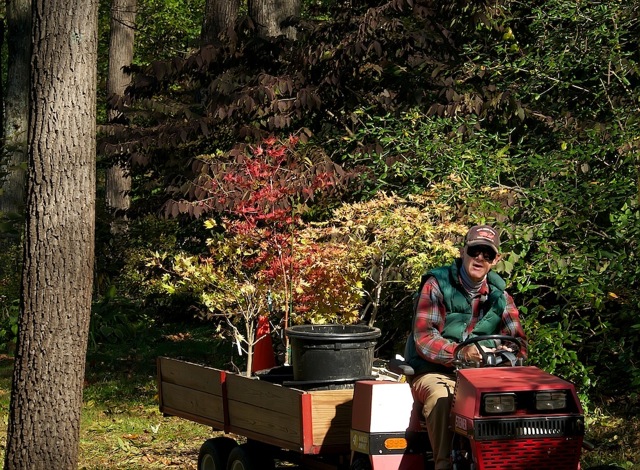Tribute to John Taggart

There’s a well-known line of filiation that one can draw from Pound and Williams to Oppen, Creeley, and from them to John Taggart. Literary historians and critics will continue to discuss the influence of various forms of Objectivism upon Taggart’s poetry. As well as other influences and other poets and artists. But what captivates me about Taggart’s poetry is simply the example of poetry it offers. By that I mean not only its trimness — its intense attention to form — but its awareness on the page of poetry as a made thing. The physicality of language, its materiality, is rendered in its delicate phrasing, in its musicality. To speak of his twentieth-century poetic lineage is necessary, but that recognition also misses the fact that his poetry is in the great lyric tradition of poetry, which in modern English goes back to the Elizabethan tradition, a tradition that valued the purity of the lyric voice over and above the autobiographical self-posturing of the poet. Too much contemporary American poetry exists in the prosaic service of attempting to make a celebrity out of the minor happenings of the poet in ways that show little regard for poetry. John Taggart’s poetry does just the opposite: it is a poetry in which the speaker’s voice achieves a chastened, even classical, lyricism. In John Taggart’s poetry you will not find a celebration of John Taggart; you will find a celebration of lyric poetry in which John Taggart’s voice is unmistakable.
from “Landscape with Light”
Fictions of the one you love
(“Vertigo”)
Not the life dreamt of
but the one found while living it—
terrors & fears,
the past plunging down like a bottomless nightmare—
it’s all real.
The troubling dreams, the troubling fictions are real.
The fictions of the ones you love are real—
like a painting whose artifice outshines
the subject of the painting.
The white domed church overlooking the blue bay,
the cemetery obelisks next to the thin, blood-orange gladiolas,
& the mysterious woman fading into a forest dusk
are radiant with strange meanings.
Haze of desire over
every object of desire:
fear of paradise,
fear from panic.
The tragedy of never ever knowing
Time lapse
(“Grey Gardens”)
Whether you can tell from this distance what
the house was before it was
consumed by wildness, by rampant
greenery is only partly the point. Its grand dreams have aged,
the ravage, evident to the eye.
Devoured by whispers what remains
remains grey-shingled & silver shadowed.
Green leaves whisper ruin, vines whisper ruin; boughs whisper ruin…
Whispers of things not allowed. Of things someone
thought was said.
The present’s the movie of the past, a dialogue of disembodied voices,
each talking to the other, over the other, a polyphonic contestation of desire
undiminished by time.
The rooms the lonely rooms echo with them.
The ocean—a thin ribbon of blue—contends in its own element
with a never-ending susurration.
From the outside, you can barely see the faces through the window screens.
From the interior—the dim, decrepit interior—the long windows are full of leaves & light.
Not even a dream
(“Deliverance”)
Riverwater rushes downstream whitewater over blackrock, over
ragged rockcleft past lean-to, boulder-slabs on the riverbank—
frenzy of fast water meeting riverrock,
the force of it a cry in the heart carrying itself beyond
the echoes of other cries echoes fainter in the churning.
Part of the green, fog-shrouded, humid wilderness,
part of the night sky—a full moon cloud-ringed in darkness—
the river
wholly takes itself as itself, insensate to suffering.
Flowing past the rusted-out car-hulls sinking into river banks,
the little white clapboard church &
the grave-yard being emptied of its graves the river
is deathlessly complete
passionless in its turbulence so flat in its final afterfalls serenity
the trees half down in it
White days, interruption
(“One Flew Over the Cuckoo’s Nest”)
The horizon of all possibilities
returns as the muffled terror of institutions—
gleaming waxed floors
long corridors & locked rooms
stretch into interminable futures
wherein whiteness is the administration of days
which
will not suffer a whit of deviation
or allow more than a rectangle of sky—
The wind blows in squalls
and between clouds & clouds
words shrivel the will
but if one were to say that words could be prayers
if one were to say that words could be love or tokens of love
if one were to say that words could grieve
then the wind that blows in squalls might be the sound of elegies
through the pines
& the fog at dusk could be said to be settling back
on the green forests & the black mountains,
hushed & hushing
a syllabic quietness
demanding nothing
vanishing at dawn
Edited by Matthew Cooperman